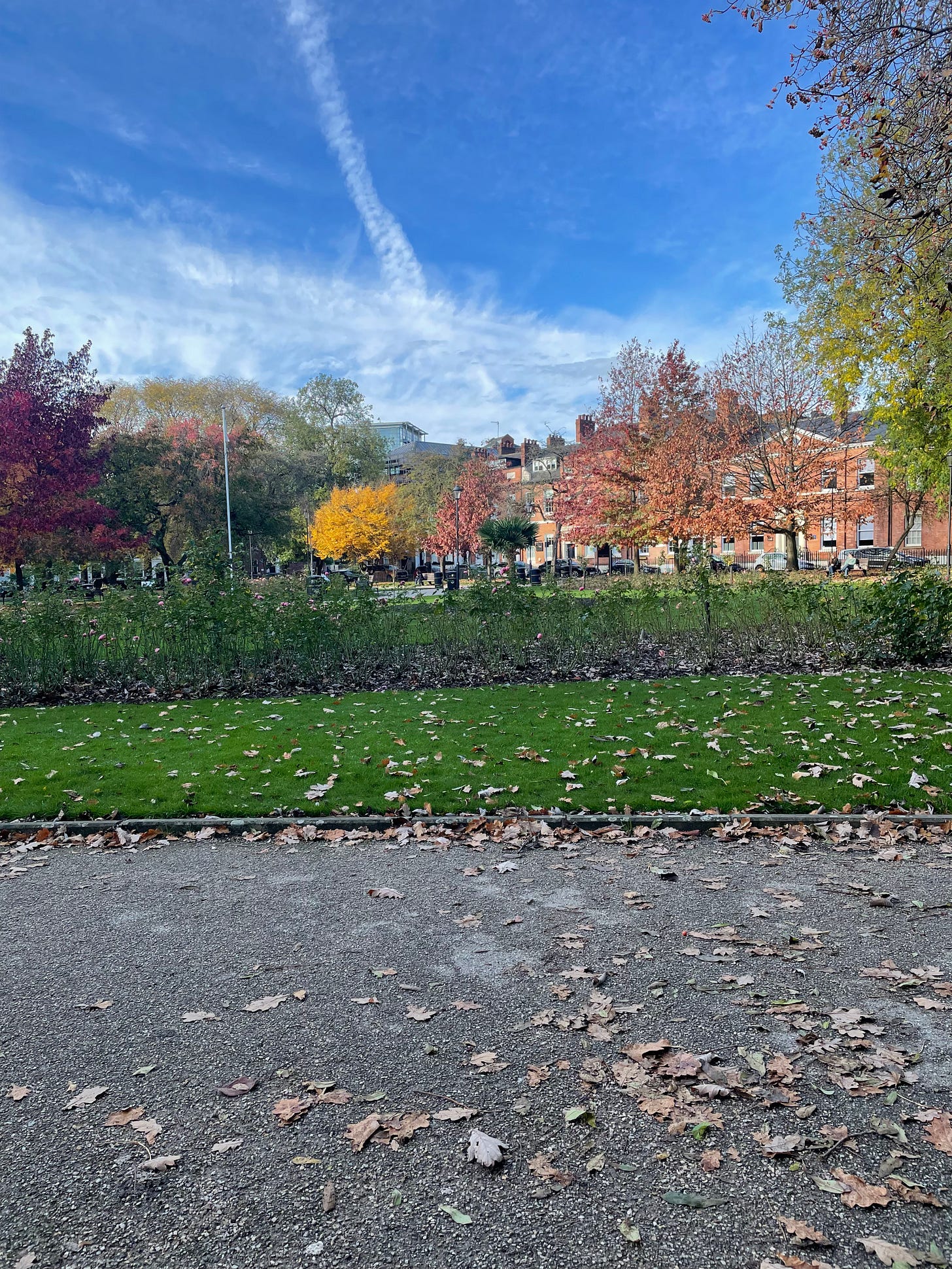Back in the summer, I took a solo trip to Switzerland. Near where I was staying, there was often a group gathered outside the Co-op, and in a seated walkway just around the corner.
On the evening two days into my trip, I headed out towards the Co-op to buy some coffee and chocolate. I wanted to quickly jump in, grab what I needed, and be back in my apartment.
When I arrived, I approached the group in their usual meeting spot. This time, however, one of the group peeled off. Ge approached me, speaking in French at a frantic pace. My heart started to beat faster as I communicated that I didn’t speak French. The man then responded in slightly broken English, which I didn’t fault him for since my French is so broken it’s non-existent, that he needed help with purchases.
I offered my help as I had some cash I was going to spend. And so, inside the Co-op I headed with my new shopping partner.
Almost immediately, he diverted away, maintaining the frantic pace from earlier, as though it spread throughout his body. As though the help offered could be taken away.
I continued about my shopping, wondering if the man would return. I grabbed my few purchases, but I couldn’t find the man anywhere. I started patrolling the shop, and found him in a corner.

He had grabbed a basket, a sure indication that this man was pursuing some heavy purchasing at my expense.
I felt cheated. I felt exploited. I also felt weak for refusing someone who was I need the level of help he assumed we would get. Was it wrong of me to assume it would be a small purchase on his part, or wrong of him to collect as many necessities as he did?
At first, I felt wronged as my strong emotions overruled any birds-eye view I’d later come to view the situation through.
I wondered if this feeling wronged had a name. I found through research that it’s named “The Sucker Effect”.
It arises when we feel manipulated or taken advantage of after offering help to another. It’s when our generosity is stretched beyond its comfortable borders. It’s when what we thought we knew about what this encounter would resemble becomes unknown.
Since then, it leads to uncertainty and internal conflict as to whether to help others. It can help set healthy boundaries for us, but we must consider it if the glove was on the other hand.

If we were desperate for food, and help was offered, could we perhaps get overexcited? In the back of our minds, could we wonder when we could next have an opportunity to eat, and so we wish to take advantage of this wonderful situation that has presented itself? If I buy enough, I could have a day with worry tomorrow. This would be my first day without worry in six months. That would feel great, right?
In the moment, my emotions reigned supreme and I felt angry. Afterwards, upon reflection, I learned a lot more about myself and the situation as I tried to consider the event through the eyes of another.
I’m not sure what I want the message of this to be. I know I don’t want the message to be to stop helping others. Perhaps it that we should sometimes expect that we might feel taken advantage of in our generosity, even if others don’t intend this, but that shouldn’t stop us from helping.
I’m currently sat in a park in the city, and I became inspired as I look up to the planes flying overhead, and ponder what my six-months of travel commencing in November will bring.
I’ve been asked multiple times today by people on the street for some help, and as of yet, I haven’t. As I leave the park, and my assessment of this situation in my past, I think I’ll go back and help.



